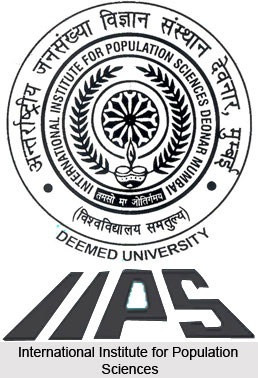 The International Institute for Population Sciences (IIPS) serves as a regional Institute for Training and Research in Population Studies. It was established in Mumbai in July 1956, and till July 1970 it was known as the Demographic Training and Research Centre (DTRC) and till 1985 it was known as the International Institute for Population Studies (IIPS). The Institute was re-designated to its present title in 1985 to facilitate the expansion of its academic activities and was declared as a `Deemed University` in August 19, 1985 under Section 3 of the UGC Act, 1956 by the Ministry of Human Resource Development, Government of India. The recognition has facilitated the award of recognized degrees by the Institute itself and paved the way for further expansion of the Institute as an academic institution.
The International Institute for Population Sciences (IIPS) serves as a regional Institute for Training and Research in Population Studies. It was established in Mumbai in July 1956, and till July 1970 it was known as the Demographic Training and Research Centre (DTRC) and till 1985 it was known as the International Institute for Population Studies (IIPS). The Institute was re-designated to its present title in 1985 to facilitate the expansion of its academic activities and was declared as a `Deemed University` in August 19, 1985 under Section 3 of the UGC Act, 1956 by the Ministry of Human Resource Development, Government of India. The recognition has facilitated the award of recognized degrees by the Institute itself and paved the way for further expansion of the Institute as an academic institution.
Started in 1956 under the joint sponsorship of Sir Dorabji Tata Trust, the Government of India and the United Nations, it has established itself as the premier Institute for training and research in Population Studies for developing countries in the Asia and Pacific region. IIPS holds a unique position among all the regional centres, in that it was the first such centre to be started, and serves a much larger population than that served by any of the other regional centres. The Institute is under the administrative control of the Ministry of Health and Family Welfare, Government of India. Besides teaching and research activities, the Institute also provides consultancy to the Government and Non-Government organizations and other academic institutions.
Objectives of International Institute for Population Sciences
The institute was set up with the following objectives:
1. To train persons from India and other countries in demography and related fields, including demographic aspects of family planning.
2. To undertake scientific research on population problems which are of special importance to India and other countries in the ESCAP region.
3. To collect, organize and disseminate demographic information about the population of India and other countries of the world.
4. To provide services of research, evaluation, training, consultation and guidance related to demographic problems to government departments, public corporations or private establishments as deemed desirable in pursuance of the objective of the Society.
5. To undertake, organize and facilitate study courses, conferences, lectures, seminars and the like to promote the aforesaid objectives.
6. To undertake and provide for publication of journals and research papers, books and to establish, maintain libraries and information service in furtherance of the objectives of the Society.
Functions of International Institute for Population Sciences
The functions of the International Institute for Population Sciences are discussed below:
Teaching
The Institute offers the following regular teaching programmes: Master of Population Studies (MPS)/ Master of Philosophy (M.Phil.) in Population Studies; Master of Population Studies (MPS) Correspondence Course; Diploma in Population Studies (DPS) Correspondence Course; Doctor of Philosophy (Ph.D.) in Population Studies; Diploma in Health Promotion Education (DHPE); M.A. /M.Sc Programme in Population Studies (Newly Launched since June 2009); IIPS-JHU course on FPRH and Short Term Courses.
Research
Apart from the teaching activities, the Institute also conducts a large number of research projects on various aspects of population. The Institute also undertakes evaluative studies and large-scale surveys. Emphasis is given on studies related to inter-relationship of various social and economic variables of the components of population change such as Fertility, Mortality and Migration. The research projects of the Institute are mostly funded by the Ministry of Health and Family Welfare, Government of India and also by the State Governments, World Bank, United Nations Population Fund, World Health Organization, International Labour Organization and other Government and Non-Government organizations.
Consultative Services
The Institute provides consultancy services and undertakes special studies on problems related to population at the request of the Government, the United Nations and other specialized agencies. Given the expertise of the staff in various areas of population, research methodology, etc., an active effort is being made to let the organizations which need short term consultancy services, know about the availability of persons.
Documentation
The Institute maintains an excellent library with most recent books on population and related topics.




















